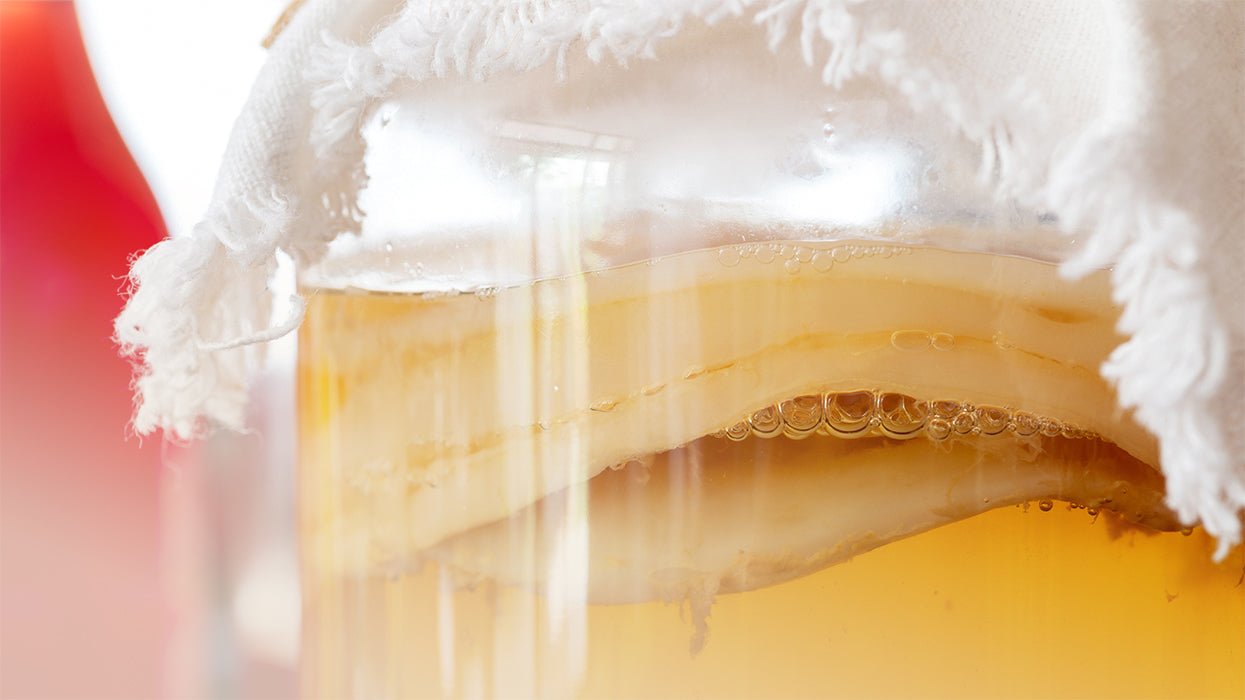
By Merle von KOMBUCHERY
What is kombucha? Fermented tea briefly explained for beginners!
Where did kombucha originate?
Just as extensive as the different flavors are the legends and myths surrounding the tea beverage. The Western world is still a bit strange to the tea drink. In other parts of the world, the potion with the familiar name and its diverse effects has long been no longer a secret. There is general agreement that kombucha originated in East Asia, Japan or China.
“Kombucha – a tradition that becomes a healthy legend.”
For one, a Chinese legend says that fermented tea beverages were invented around 247 BC. - 221 BC was created. It is possible that the Japanese doctor Kombu is also the namesake. The name Kombucha could also be derived from a Japanese algae tea "Kombu" - algae + "Cha" - tea = "Kombucha" . It is possible that the Japanese samurai in the 10th century AD also used Kombucha to gain strength for the next battle. A legend According to this, the samurai wore the miracle drink on their hips even back then.
What is kombucha?
Simply put, it is a fermented tea drink. With the help of a tea mushroom, various types of sweetened tea, such as black tea, are fermented. The so-called tea fungus (also called Scoby) is a community of various microorganisms, bacteria and yeasts. During fermentation, tea and sugar are metabolized into a refreshing drink in just a short time. This not only tastes delicious, but is also very healthy.
The tea drink offers a delicious, naturally carbonated, sweet and sour alternative to lemonade or other soft drinks. Various vitamins and organic acids and many other important nutrients can be produced during fermentation.

An overview of the health-promoting ingredients that can result from the fermentation of kombucha:
- amino acids
- Antibiotic substances
- Succinic acid
- Butyric acid
- Caprylic acid
- Decanoic acid
- Various types of yeast and bacteria and enzymes
- acetic acid
- Folic acid
- glucaric acid
- Glucuronic acid
- gluconic acid
- Catechins and other polyphenols
- niacinamide
- octanoic acid
- oxalic acid
- pangic acid
- phenethyl alcohol
- Probiotic lactic acid bacteria
- propionic acid
- Vitamin B1, Vitamin B2, Vitamin B3, Vitamin B5, Vitamin B12, Vitamin C, Vitamin D, Vitamin K
- citric acid





